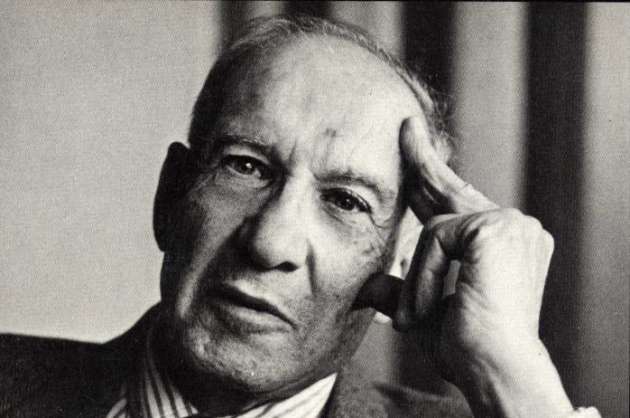Anupama Nair
Peter Drucker was an Austrian-American management consultant, educator, and author, whose writings contributed much to the philosophical and practical foundations of the modern businesses. He was also a leader in the development of management education, he invented the concept known as ‘management by objectives and self-control’, and he has been described as ‘the founder of modern management’.
He was born on November 19, 1909 in Vienna to Caroline Bondi and Adolf Drucker. His mother had studied medicine and his father Adolf Drucker was a lawyer and high-level civil servant. Drucker was born in Vienna, Austria, in a small village called Kaasgraben. He grew up in a home where intellectuals, high government officials, and scientists would meet to discuss new ideas.
After graduating from Döbling in 1927, Drucker found few opportunities for employment after the First World War in Vienna, so he moved to Germany, first working as an apprentice at an established cotton trading company, then as a journalist, writing for Der Österreichische Volkswirt or The Austrian Economist. He then moved to Frankfurt, where he took a job at the Daily Frankfurter General-Anzeiger. He also earned a doctorate in International Law and Public Law from the Goethe University Frankfurt in 1931.
In 1933, he went to England. In London, and he worked for an insurance company, and later as the Chief Economist at a private bank. He also reconnected with Doris Schmitz, an acquaintance from the University of Frankfurt, and they got married in 1934. The couple permanently relocated to the United States, where he became a university professor as well as a freelance writer and business consultant.
He had a distinguished career as a teacher, first as a professor of politics and philosophy at Bennington College from 1942 to 1949, and then for 22 years at New York University as a Professor of Management from 1950 to 1971.
Drucker went to California in 1971, where he developed one of the country's first executive MBA programs for working professionals at Claremont Graduate University . From 1971 until his death, he was the Clarke Professor of Social Science and Management at Claremont. The Claremont Graduate University's Management School was later renamed as the Peter F. Drucker Graduate School of Management in his honor in 1987. He established the Drucker Archives at Claremont Graduate University in 1999 and the Archives became the Drucker Institute in 2006. Drucker taught his last class in 2002 at age 92. He continued to act as a consultant to businesses and nonprofit organizations well into his nineties. Drucker died on November 11, 2005, in Claremont, California, of natural causes
Over the next 70 years, Drucker's writings would be marked by a focus on relationships among human beings, as opposed to the crunching of numbers. His books were filled with lessons on how organizations can bring out the best in people, and how workers can find a sense of community and dignity in a modern society organized around large institutions.
MBO was a phrase invented by Peter Drucker in his book ‘The Practice of Management’, published in 1954. MBO measures the performance of employees as compared to typical standards for the job. The belief is that, if employees help determine those standards, they will be more likely to fulfill them.
When his ideas were initially introduced, he was considered a ‘contrarian’ by most traditional business leaders. However, the former CEO of General Motors, Jack Welsh recognized his wisdom and hailed him as one of the greatest thinking minds in the world of management. Five of Drucker’s key concepts are:
-
Favor decentralization instead of command and control,
-
Employees are assets and not liabilities,
-
A manager’s job is to prepare and free people to perform,
-
An organization should have a standard way to execute its business processes.
-
The corporation should be viewed as a human community.
Network marketing, by design, is formed by small teams of employees working together within their own teams and independently from others. Distributors are clearly focused on getting new customers for the company’s products. The corporate staff meanwhile is dedicated to doing what they do best i.e., developing new products, creating marketing materials, manning help lines, providing training tools, managing the compensation program, and enforcing policy.




























